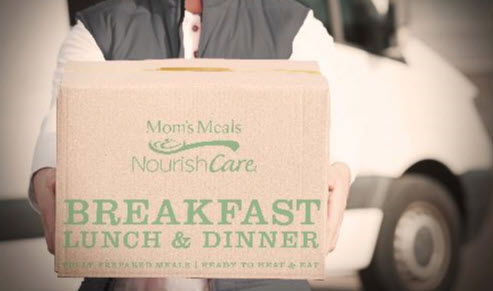The concept of food as medicine has gained considerable traction in recent years. Increasingly, health plans, states, and other payers are incorporating food-based benefits into their offerings, including meal programs for those who are homebound, as well as for critically and chronically ill patients.
Studies have shown that home-delivered meals improve health outcomes, lower health care costs, and improve quality of patient care, excellent news for payers, health care providers, and patients alike.
There are specific populations poised to benefit most from home-delivered meal programs
Post-discharge patients
Patients who are discharged from the hospital often require short-term support as they recover from surgery or an illness. In many cases, discharged patients prefer to return to their own home, rather than moving to a rehab unit or a skilled nursing facility, but lack the support of caregivers, who would allow them to do so comfortably.
A common example is someone who just had a double-knee replacement and may be unable to prepare meals on her own due to limited mobility. A patient who underwent heart-valve surgery may be restricted from driving, and too weak to shop for groceries and prepare meals that adhere to the diet restrictions prescribed by his doctor.
According to recent studies, proper nutrition not only helps to support patients’ recovery but also reduces the risk of hospital readmission. In a Center for Medicare and Medicaid (CMS) pilot study, post-discharge meals were shown to reduce hospital readmissions by 39%.
For health plans, time-limited coverage for meals to post-discharge patients — such as two meals per day over two weeks — can cut readmission rates and avoid costly rehabilitation facility stays.
Patients with chronic conditions
Many health plans are integrating medically tailored meals into their chronic-care programs, with coverage typically lasting for at least 90 days. For individuals with one or more chronic conditions — such as diabetes (including gestational diabetes), cancer, heart conditions, and kidney disease — medically tailored meals can dramatically impact health. Nutrition is clinically proven to effectively treat and slow the progression of several of the leading chronic conditions, including heart disease, diabetes, renal disease, and obesity.
Statistics show that chronic conditions cost the American economy in excess of $1 trillion per year, with growth expectations to surpass $6 trillion per year by mid-century. According to research, those with a chronic condition who receive meals have lower average monthly health care costs (31% lower), fewer admissions (50% reduction) and shorter length of stay (37% shorter) when admitted. This translates into substantial savings for health plans, especially considering that one in every four Americans has multiple chronic conditions, and three in four Americans aged 65 and older have multiple chronic conditions.
Consider patients with uncontrolled diabetes. Supplying meals to these health plan members in an effort to help manage their condition can yield significant savings. In one estimate, a half-point drop in hemoglobin A1c yielded approximately $4,000 in annual savings. Another estimate showed a per-person, per-month cost savings of $683, or approximately $8,000 per person per year for reduced diabetes complications. Improving diabetes control with a meals program could yield an ROI between 3:1 and 6:1, depending on patient outcomes.
Patients in need of longer-term support
People in need of longer-term support services include a variety of audiences—from those with developmental and/or physical disabilities to older adults. Although many older adults remain independent and actively involved in their communities, many are homebound and frail, and may suffer from multiple chronic conditions. They may be food insecure, meaning they have difficulty in obtaining nutritionally adequate and safe food because of a lack of resources.
According to studies, home-delivered meals significantly improve diet quality and nutrient intake, as well as reduce food insecurity and nutritional risk.
Some individuals in need of longer-term support are eligible for services allowed by the Home- and Community-Based Care Service (HCBS) waiver program under Section 1915(c) of the Social Security Act or other government-support programs. Since they were authorized in 1981, Section 1915(c) waiver programs have become a critical source of financing for home and community-based alternatives to institutional services. They comprise the single largest portion of non-institutional long-term support services (LTSS) spending.
The HCBS waiver program enables members to be cared for in their own home, preserving their independence and quality of life and, ultimately, preventing and/or delaying nursing-home placement. With CMS approval, programs can provide nutrition services, including home-delivered meals, nutrition counseling and nutrition risk reduction, to this group. According to a recent CMS summary report, approximately 38 states provide nutrition services in this way. In Iowa, for example, a covered participant is eligible to receive up to 14 home-delivered meals and 15 minutes of nutritional counseling per week. Meals must meet nutritional requirements (e.g., provide one-third of the recommended daily intake).
By the year 2030, it is estimated that approximately 70 million people over 65 years of age will be living in the United States. As this population continues to grow, so must the number of programs to help these older adults live independently within the community.



